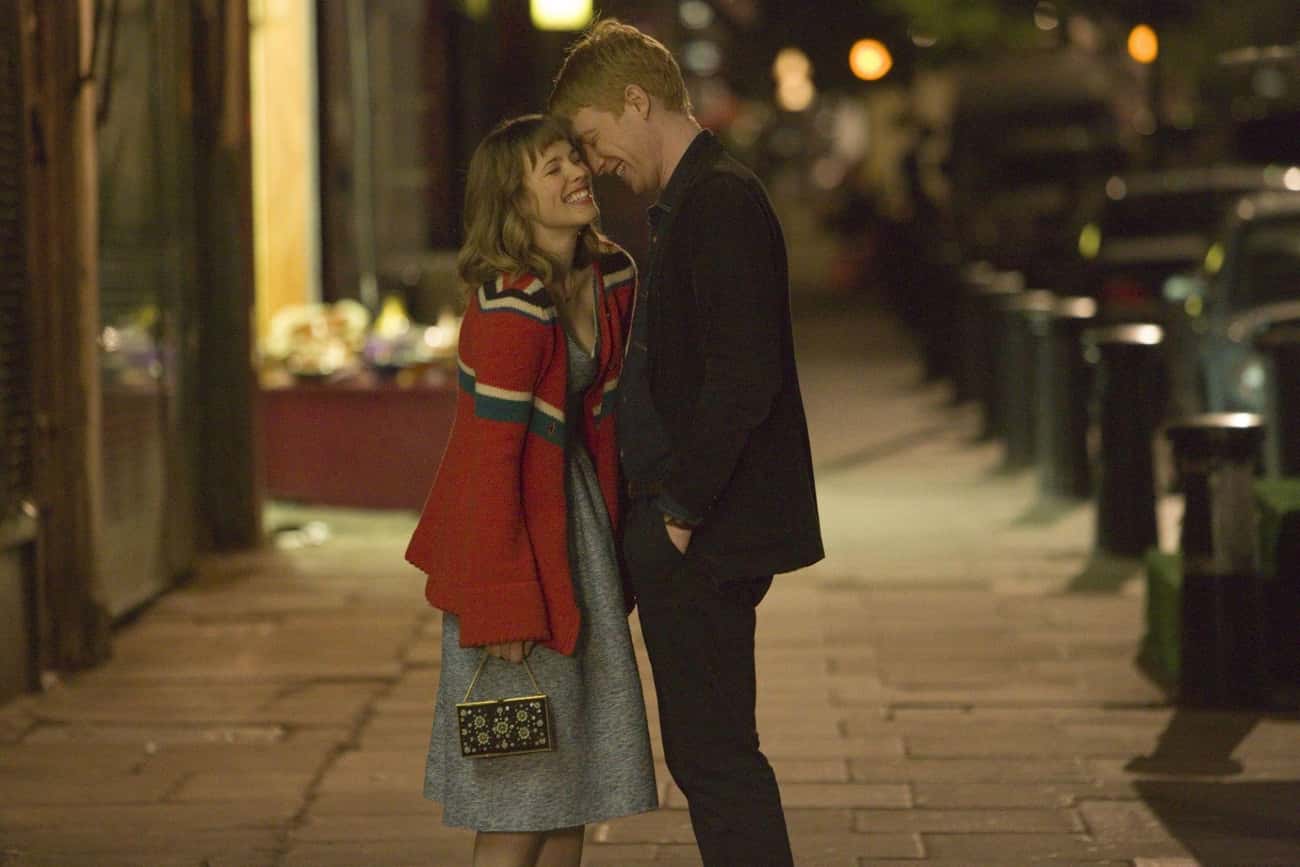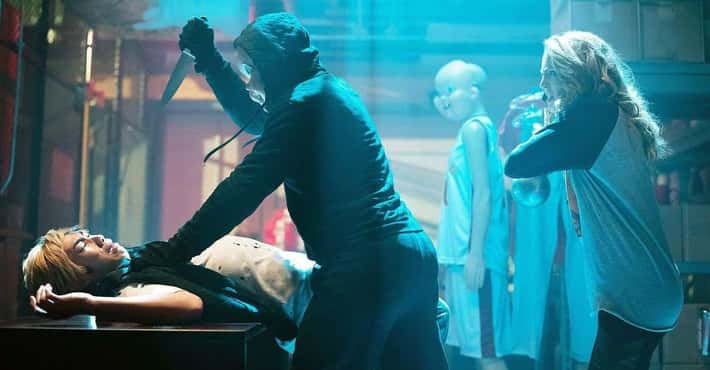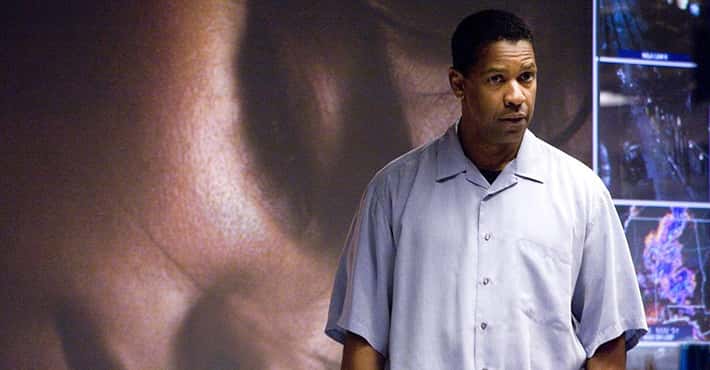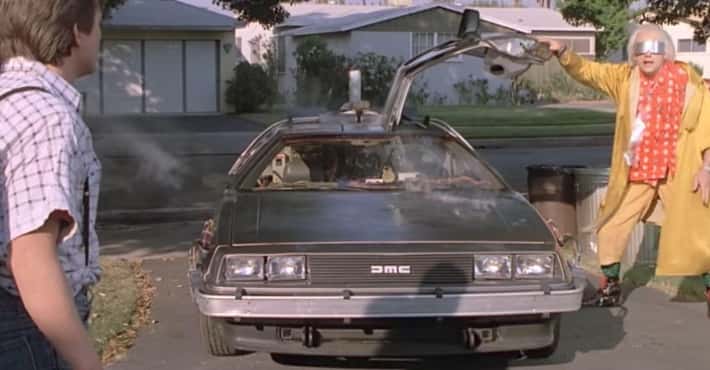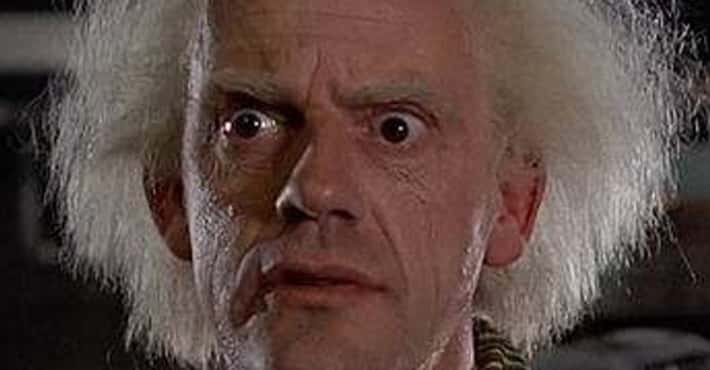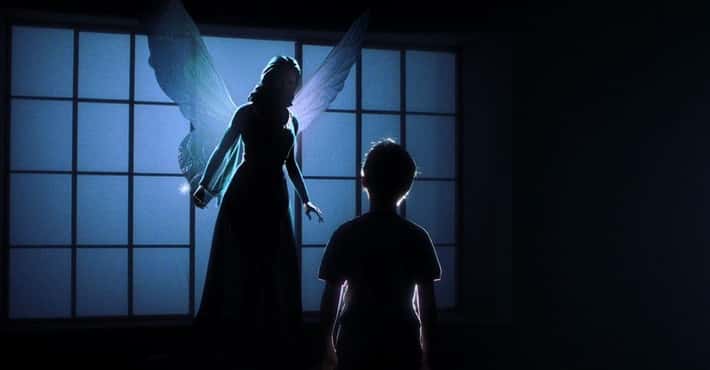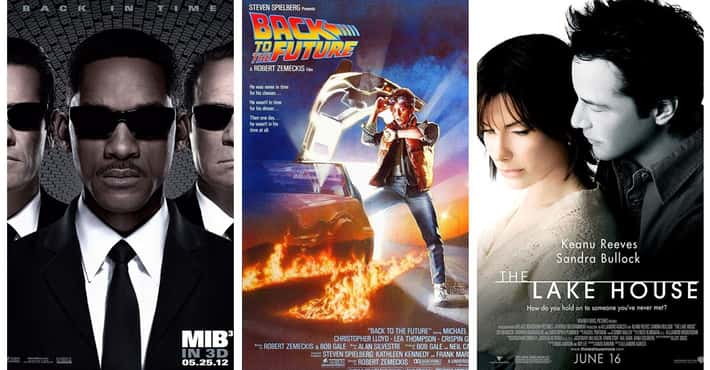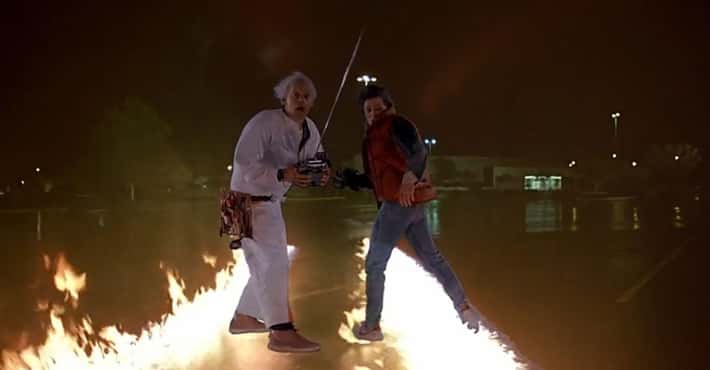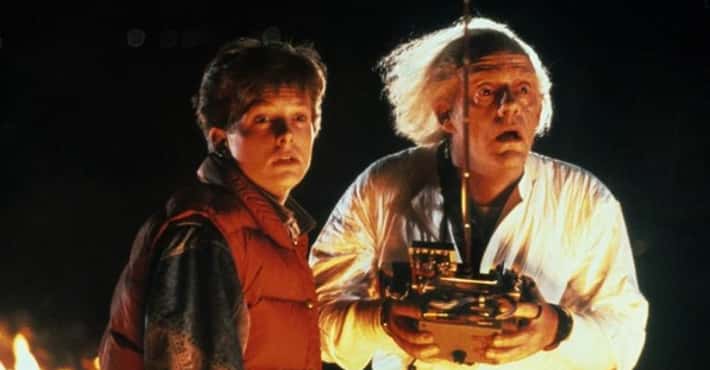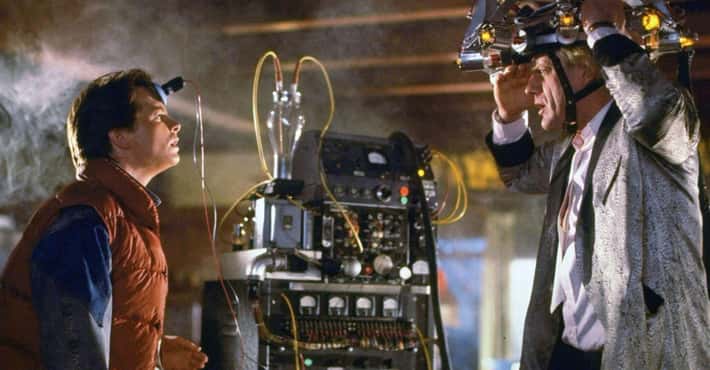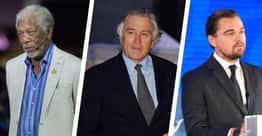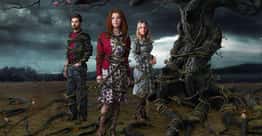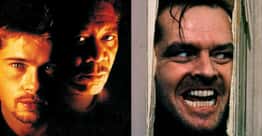Underrated Movies That Use The Butterfly Effect Theory
The butterfly effect is a concept in chaos theory that many of us are probably familiar with thanks to its citation by Dr. Ian Malcolm in Jurassic Park; however, the idea's origins reach back much farther than that. In fact, the concept itself - that small events can have unforeseen consequences - is about as old as storytelling.
The first person to really solidify the notion into a scientific concept might have been meteorologist and mathematician Edward Lorenz, who was most certainly the first person to coin the phrase “butterfly effect,” and who used the example of a butterfly flapping its wings as something which might affect weather patterns.
This simple idea - that very small changes in starting conditions can have massive and unpredictable changes in outcomes - has shaken up the world of science since Lorenz published it in 1963, but it has also seized the imaginations of countless storytellers. In particular, stories about time travel seem to relish the idea of small alterations in the past having significant ripples in the future, an idea that existed in sci-fi short stories before Lorenz ever published his theories.
These films all explore the idea of the butterfly effect in various ways, from time travel to experimental storytelling techniques that showcase alternative ways in which the same story might have unraveled with only slight changes. Vote up the films you think are worth watching time and time again.
- 1222 VOTESPhoto: New Line Cinema
You may not be terribly surprised to learn that a movie titled The Butterfly Effect would deal with the unintended consequences of small actions.
In this case, Ashton Kutcher plays a young man with a troubled past who realizes he can “time travel” to take control of himself as a younger person, thereby altering his future; however, each time he does so, the actions he takes to better his and others' lives have unintended consequences that require him to travel back again and again.
The film didn't sit well with critics but performed admirably at the box office, spawning two sequels.
More The Butterfly Effect- #28 of 252 onThe 200+ Best Psychological Thrillers Of All Time
- #444 of 769 onThe Most Rewatchable Movies
- #37 of 125 onThe 100+ Grossest Movies Ever
- 2132 VOTESPhoto: New Line Cinema
A cop in 1999 finds a radio that allows him to communicate with his deceased father in 1969, which he uses to prevent the latter's demise in this film starring Dennis Quaid and Jim Caviezel.
Each interference of the present with the past, however, creates unintended consequences. For example, as a result of their meddling, a serial killer who died years ago instead survives into the present to claim many more victims, eventually coming after both father and son in their respective time periods.
While in this case, only information travels back and forth in time, it shows how even a small interference in time can create major ripples.
More Frequency- #295 of 308 onThe 295+ Best Movies For Guys
- #115 of 123 onThe Biggest Tearjerker Movies Of All Time
- #123 of 168 onThe 165 Best Tearjerker Movies of All Time, Ranked
- 3117 VOTESPhoto: Sony Pictures
The events that shape time in Looper aren't necessarily what we would normally consider “small” - they are, after all, life and death for the people involved. But at the same time, we don't normally consider the impact one person's life can have on those around them, especially people they hardly know.
Rian Johnson's sci-fi noir posits a future in which time travel exists but is illegal. In this future, disposing of bodies is virtually impossible, so criminals send individuals back in time to be executed by “loopers” who do the job without ever knowing the identity of their target.
When one of these loopers fails to “close the loop” by offing his future self, however, it begins a ripple effect that may eventually change the future world entirely.
More Looper- #392 of 769 onThe Most Rewatchable Movies
- #53 of 166 onThe 150+ Best Futuristic Dystopian Movies
- #87 of 176 onThe Best Science Fiction Action Movies
- 4151 VOTESPhoto: Newmarket Films
Richard Kelly's cult hit - which helped catapult a young Jake Gyllenhaal to stardom - uses an unusual narrative device to show what either did happen or would have happened, depending on how you look at it, if the eponymous character survived a freak accident.
This is far from the only instance of the butterfly effect in the film, however, as small decisions have big repercussions for the lives of every character Donnie interacts with, sometimes for the better and sometimes for the worse.
More Donnie Darko- #656 of 769 onThe Most Rewatchable Movies
- #13 of 99 onThe Best Period Movies Set in the '80s
- #62 of 125 onThe 100+ Grossest Movies Ever
- 555 VOTES
Project Almanac
Photo: Paramount PicturesThere are plenty of films about time travel, but there are far fewer found-footage time travel movies, with Project Almanac being one of those few.
In it, an aspiring inventor and his high school friends find a partially completed time machine left behind by his inventor father and finish it up, allowing them to travel back in time; however, when our protagonist begins changing the timeline, catastrophes ensue.
His small tweaks eventually ripple out into much bigger repercussions that somehow manage to erase individuals from the timeline entirely.
More Project Almanac- #23 of 56 onThe 50+ Best Time Loop Movies
- #56 of 73 onThe 65+ Best Found Footage Movies
- #20 of 21 onThe Best Movies About Changing The Past
- 680 VOTESPhoto: Warner Bros.
The entire Final Destination franchise, which kicked off in 2000, features variations on the butterfly effect theory, as the individuals involved “cheat death” through a psychic vision that allows them to avoid catastrophe, only to then be picked off one by one via unlikely coincidences.
Of the bunch, however, the fifth movie in the series may be the one that most resolutely embraces the idea of unintended consequences, as the survivors learn that they can buy themselves more time if they then take the life of someone who wouldn't have died otherwise - only to discover that even that isn't as straightforward as it appears, and they might be caught in a series of ripples that are already spreading.
More Final Destination 5- #42 of 118 onThe Best Horror Movie Sequels
- #31 of 80 onThe Best Teen Horror Movies Of All Time
- #12 of 15 onThe Most Disturbing Deaths In The 'Final Destination' Franchise
- 767 VOTESPhoto: Stage 6 Films
Adapted from a 1959 short story by Robert A. Heinlein, this film by the Spierig brothers hinges on a “predestination paradox” that's essentially a more literal version of the hit novelty song “I'm My Own Grandpa."
Basically, through time travel, multiple people are actually the same person, which is only possible thanks to (seemingly) chance encounters and some rather unlikely happenstances. That these coincidences are actually engineered by other individuals (who may also be the same individual) using time travel doesn't make them any less representative of the chaotic/orderly paradoxes of the butterfly effect theory.
More Predestination- #176 of 252 onThe 200+ Best Psychological Thrillers Of All Time
- #104 of 166 onThe 150+ Best Futuristic Dystopian Movies
- #9 of 56 onThe 50+ Best Time Loop Movies
- 859 VOTESPhoto: Sony Pictures
Something of an international sensation when it was first released, this experimental thriller from writer/director Tom Tykwer has been somewhat forgotten in the years since and is ripe for reappraisal.
Telling the same story across several 20-minute repetitions, the film follows the eponymous Lola (Franka Potente) as she attempts to secure 100,000 Deutschmarks in 20 minutes in order to prevent her boyfriend from being killed by his employer. Each time she fails, the clock resets and the film starts over, as we see what might have happened differently had small details changed.
More Run Lola Run- #238 of 379 onThe Best Movies Of The 1990s
- #42 of 98 onThe Best Movies Of 1998, Ranked
- #99 of 425 onThe Greatest Movies in World Cinema History
- 958 VOTESPhoto: Universal Pictures
In About Time, Dohmnall Gleeson plays a man who learns, on his 21st birthday, that the men in his family have the ability to time travel, thereby effectively changing their own pasts and lives. His father encourages him not to use the power for wealth or fame, and he instead decides to use it to improve his own love life.
Each time he travels back, however, he finds that there are limits to what he can change, as well as unintended consequences that come with seemingly benign decisions. Eventually, he learns to accept his life as it is.
More About Time- #54 of 136 onThe 100+ Best Movies For Date Night
- #45 of 46 on50+ Quirky Romance Movies With Unique Love Stories
- #107 of 473 onThe 400+ Best Chick Flicks Ever
- 1047 VOTESPhoto: Oscilloscope
An extremely narrow line separates the butterfly effect and multiverse theory, which suggests that alternate parallel universes exist in which the same people's lives have played out differently. A film like 2013's mind-bending Coherence samples a bit from both.
In it, a dinner party is interrupted by a comet passing overhead - a comet that may have split the world into multiple different realities that diverge from the point of its passage, with different consequences unfolding for the different actions in each. As the various alternate realities interact, chaos ensues.
More Coherence- #6 of 26 onThe Best Horror Movies About Time Travel
- #17 of 48 onThe 40+ Best Mystery Movies On Prime Video
- #23 of 36 onThe 35 Best Suspenseful Movies On Prime, Ranked
- 1137 VOTESPhoto: IFC Films
Known for its ultra-low budget and heady technical jargon, Primer was written and directed by Shane Carruth, who not only starred in the film but also provided its score and performed other behind-the-scenes roles on the film.
A former engineer with a degree in mathematics, Carruth chose not to simplify the film's high-level theories into layman's terms, making Primer somewhat impenetrable for some viewers; others, however, found the film's “hard sci-fi” approach to time travel invigorating.
In it, two friends inadvertently create a machine allowing them to travel back in time by just a few hours. Despite great care not to create causal disturbances, however, they find that even such limited time travel can have significant consequences.
More Primer- #234 of 252 onThe 200+ Best Psychological Thrillers Of All Time
- #84 of 99 onThe Best Movies Of 2004, Ranked
- #19 of 56 onThe 50+ Best Time Loop Movies
- 1249 VOTESPhoto: Miramax
Sometimes, all it takes is one small thing to change your life. That's the premise of Sliding Doors, a romantic comedy/drama starring Gwyneth Paltrow as a PR exec who loses her job and then either catches or misses her train.
The movie plays out in two parallel storylines, one of which showcases what happens if Paltrow's character catches her train, the other of which follows what unfolds if she doesn't. Naturally, the repercussions of each branch are much greater than her merely being a little early or late getting home.
More Sliding Doors- #83 of 98 onThe Best Movies Of 1998, Ranked
- #50 of 70 onThe Best Movies About Getting Dumped
- #30 of 53 onThe Best Alternate Reality Movies, Ranked
- 1338 VOTESPhoto: Warner Bros.
More than a decade before Edward Lorenz published his “butterfly effect” theory, Ray Bradbury wrote a classic science fiction short story exploring similar concepts - even involving a butterfly.
“A Sound of Thunder” posits a future in which time travel is not only possible but relatively commonplace, especially for a company called Time Safari, which sends hunters back in time to bag extinct game. In order to prevent catastrophic changes to the timeline, hunters only target creatures that were about to perish anyway, but when one panicked hunter steps off the path in the Cretaceous period and crushes a butterfly, everything changes.
In 2005, Peter Hyams directed a movie version that turned Bradbury's relatively simple story into a big-budget spectacle, though he kept the basic idea of even a small alteration to the distant past having massive effects on the future.
- 1435 VOTESPhoto: Magnolia
Time travel can wreak havoc, even when there isn't very much time involved at all, as is the case in Nacho Vigalondo's Timecrimes.
Karra Elejalde plays Hector, a man who is accidentally (or maybe not-so-accidentally) transported one hour into the past, which sets up a series of causal loops in which he must attempt to stop other versions of himself from inadvertently causing tragedies; however, each time he does so, he seems to create a series of unintended ripples that affect his past, present, and future.
More Timecrimes- #15 of 56 onThe 50+ Best Time Loop Movies
- #8 of 26 onThe Best Horror Movies About Time Travel
- #14 of 16 onThe Most Underrated Sci-Fi Horror Movies Of The 2000s
- 1521 VOTESPhoto: Universal Pictures
One of the earliest horror anthology films, Dead of Night bears the unlikely distinction of having inspired Fred Hoyle's famous “Steady State” model of the universe. This is based on the film's framing story, in which a man arrives at a country house he had previously visited in his nightmares.
Though seemingly predestined, his arrival creates ripples that affect everyone in the house, even though no one had planned for such eventualities before coming, and he's unknown to virtually everyone there. At the end of the film, it's revealed that perhaps the preceding sequence of events was the nightmare, and he sets off to arrive at the house yet again.
While the circular nature of this narrative may suggest something more orderly than the butterfly effect, the combination of chance and causality is certainly an early precursor to these kinds of ideas.
- 1642 VOTESPhoto: Magnolia Pictures
In this cult film from Belgian writer/director Jaco Van Dormael, Jared Leto plays Nemo Nobody, the last mortal in a world in which humans have achieved immortality. As he recounts his life story, he goes over a series of seemingly contradictory versions of events - what would have happened, had he made different choices, and therefore, what possibly did happen, according to multiverse theory.
Making use of numerous philosophical and scientific concepts, the story showcases the importance of even small moments in setting up the future.
More Mr. Nobody - 1724 VOTESPhoto: Netflix
Even actions undertaken with the best of intentions can have horrifying consequences, as exemplified in this 2020 Korean thriller.
Park Shin-hye plays Kim Seo-yeon, a young woman who finds a cordless phone in her mother's house that lets her speak with its former occupant 20 years in the past. Oh Young-sook is about the same age in 1999 as Kim Seo-yeon is in 2019, and the two strike up a friendship over the phone, using their knowledge to influence the past to improve Seo-yeon's life in the present and spare Young-sook's in the past.
There's just one problem: Young-sook is dangerously deranged, and she quickly begins preying not only on random victims but on individuals close to Seo-yeon.
More The Call- #45 of 114 onThe Best Korean Movies Of All Time
- #10 of 16 onThe Best Phone Horror Movies That Don't "Phone It In"
- #10 of 72 onThe Best Korean Thrillers Of All Time










